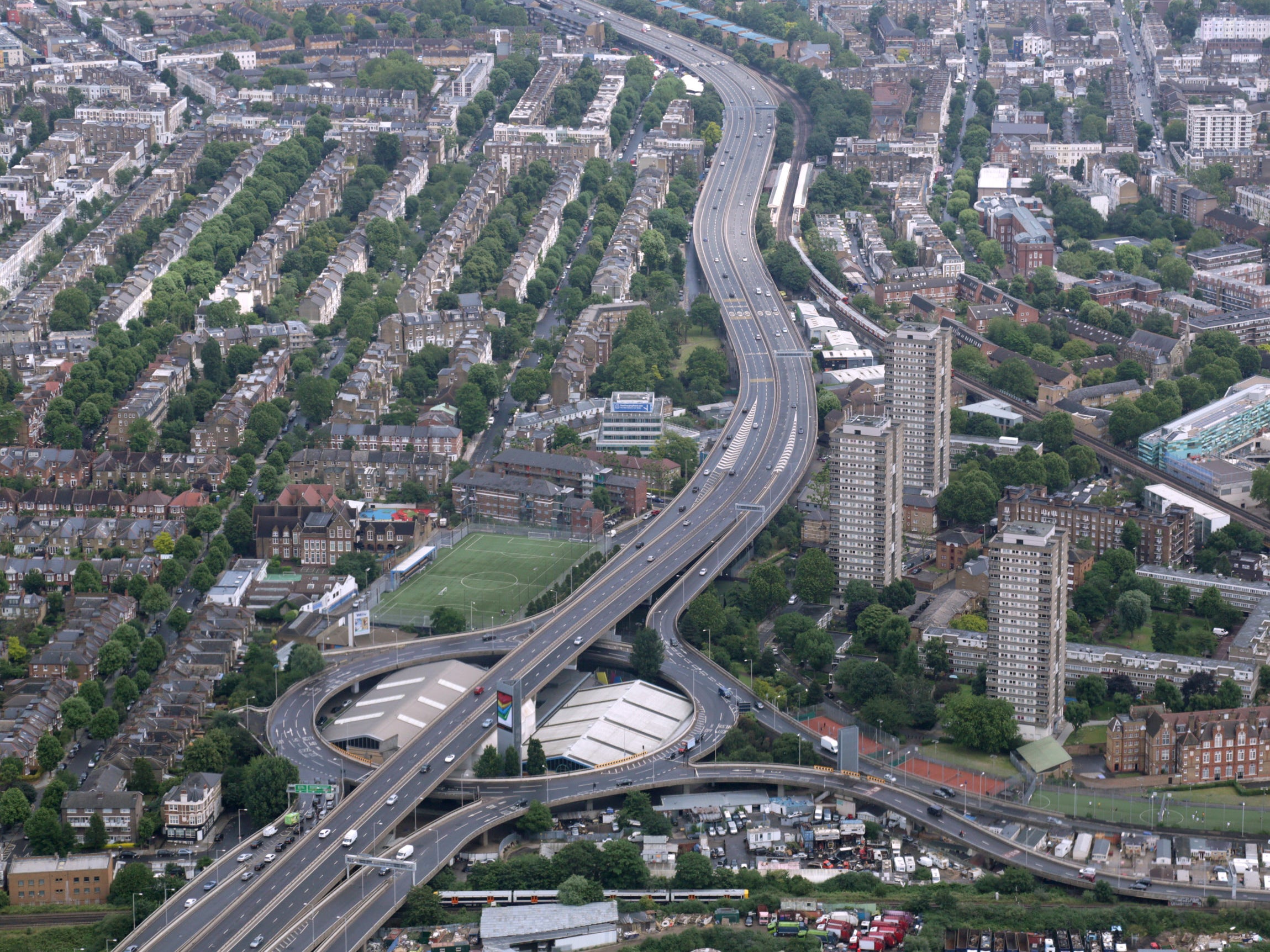Living near major roads can increase risk of dementia, says study
Modest rise in dementia risk from living near busy roads 'could pose large public health burden'

People who live near a major road are more likely to develop dementia than those who do not, researchers have found.
Living less than 50 metres, or around eight terraced houses, from a busy road can increase the risk of developing dementia by seven per cent.
The potentially damaging effect of air pollution and noise from heavy traffic on the brain has been the subject of a number of studies.
But now scientists tracking 6.6 million people living in the Canadian province of Ontario have found up to one in 10 cases of dementia among those living 50 metres from a busy road could be attributed to their exposure to high levels of traffic.
“Our study suggests that busy roads could be a source of environmental stressors that could give rise to the onset of dementia,” said Dr Hong Chen, the study’s lead author.
“With widespread exposure to traffic and growing rates of dementia, even a modest effect from near-road exposure could pose a large public health burden.”

Dr Chen and his colleagues examined the medical records and post codes of all adults in Ontario aged between 20 and 85 for over a decade, from 2001 to 2012.
They found dementia was more common the closer people lived to main roads, and living less than 200 metres – the length of four Olympic-sized swimming pools – from a busy road was linked to a two per cent increase in the risk of developing a serious neurodegenerative disease.
The study accounted for external factors such as socioeconomic status, education level, BMI and smoking, and also investigated the possibility of a similar link between traffic exposure and the risk of developing Parkinson’s disease or multiple sclerosis.
However, unlike the findings regarding dementia, no connection was found between living near a busy road and developing these diseases.
Around 47.5 million people worldwide have dementia, of which the most common type is Alzheimer’s disease, according to the World Health Organisation.
In November, it overtook heart disease to become the leading cause of death in England and Wales.
Dementia, which mainly affects older people, causes a deterioration in memory, thinking and behaviour and can impede someone’s ability to perform everyday activities.
“Despite the growing impact of these diseases, little is known about their causes and prevention,” said Dr Chen.
“More research to understand this link is needed, particularly into the effects of different aspects of traffic, such as air pollutants and noise.”
Rob Howard, Professor of Old Age Psychiatry at University College London, said the study did not go far enough to explain whether the small increase in the risk of developing dementia was driven directly by proximity to traffic or indirect effects.
“Research to date suggests that the best way to reduce your dementia risk is to look after your general health – stop smoking, control your blood pressure and blood sugar level and take exercise,” he said.
“We know that major road air pollution is bad for general health and this latest study doesn’t tell us whether the small increase in dementia risk is driven by indirect effects or whether proximity to traffic directly influences dementia pathology.
“Regardless of the route of causation, this study presents one more important reason why we must clean up the air in our cities.”
Join our commenting forum
Join thought-provoking conversations, follow other Independent readers and see their replies
Comments
Bookmark popover
Removed from bookmarks